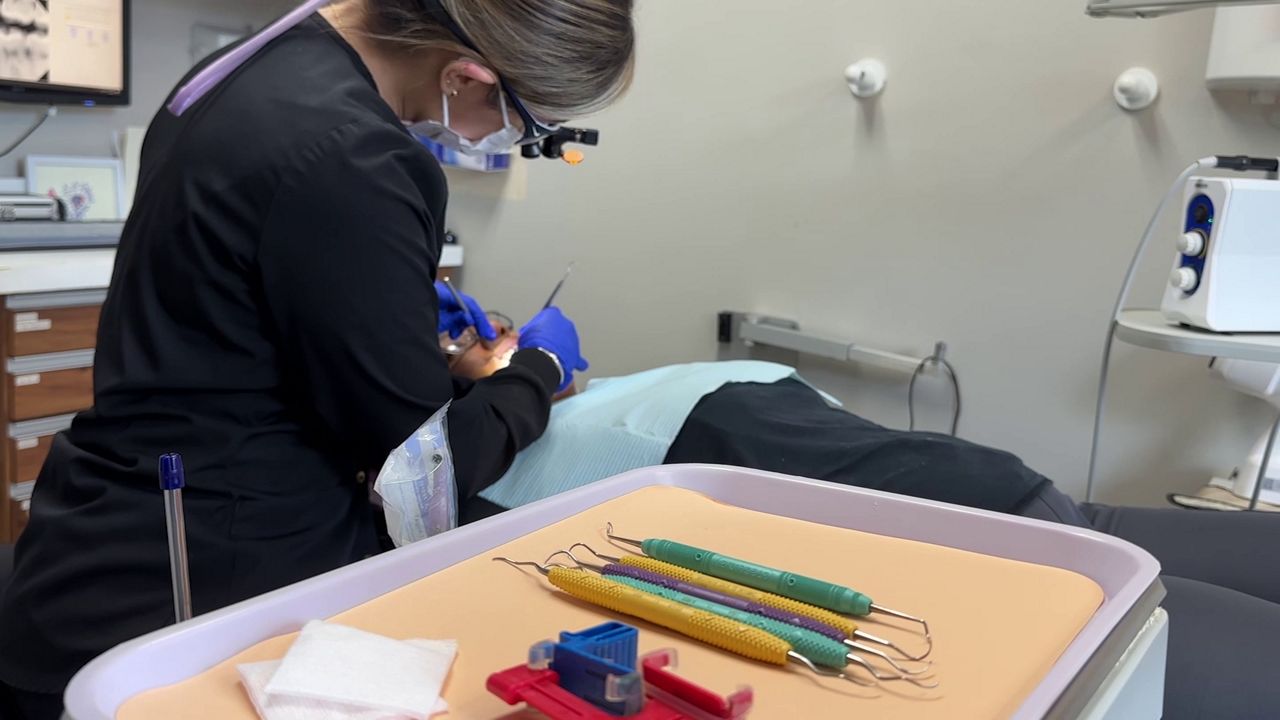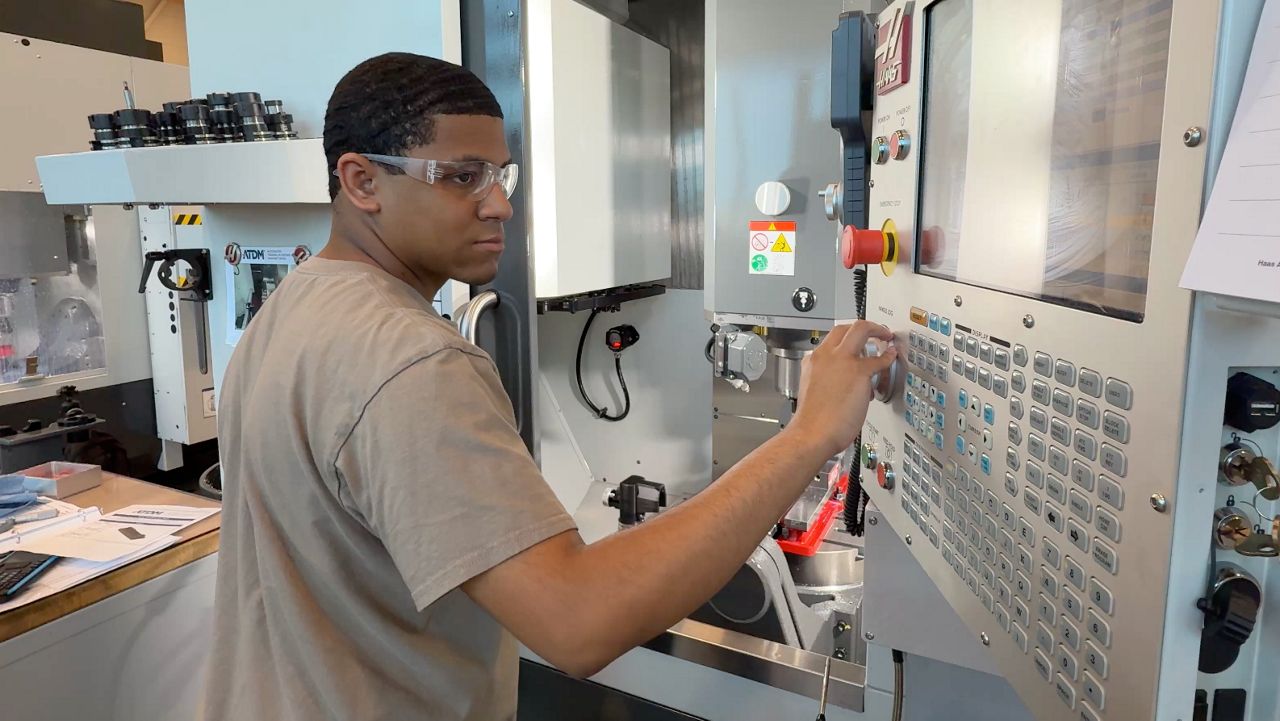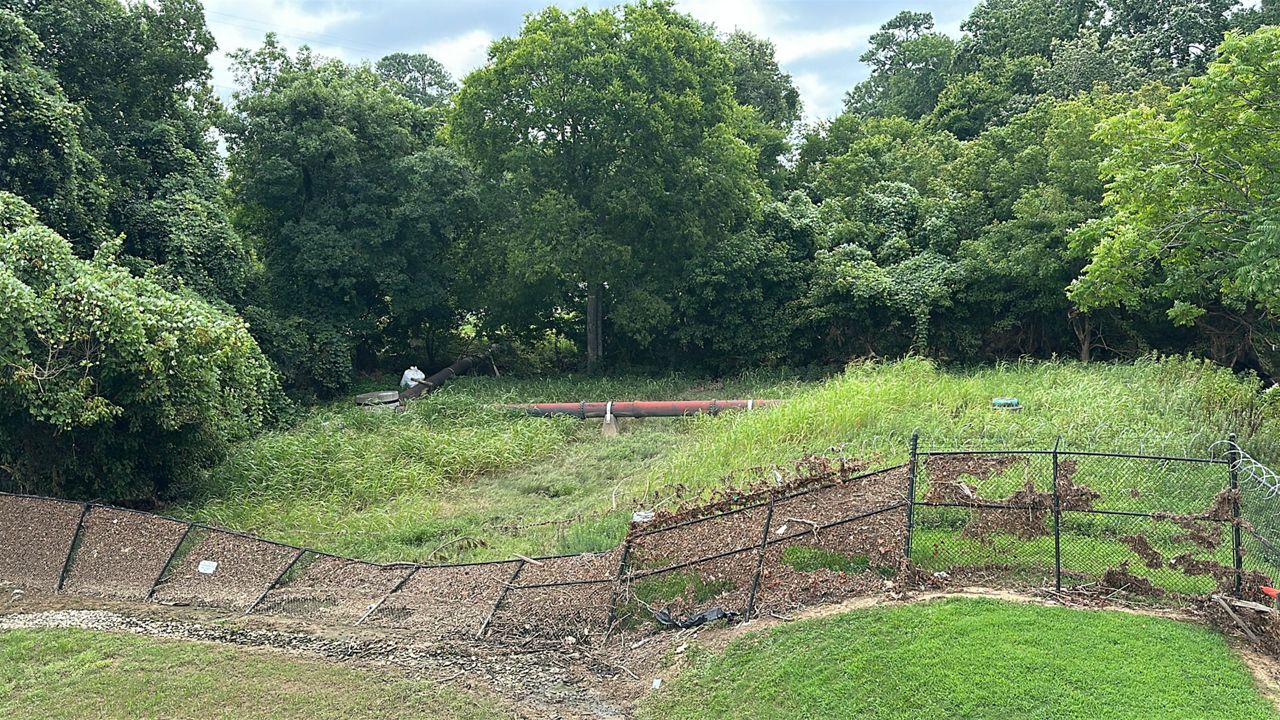CHAPEL HILL, N.C. — Student health is top of mind for many colleges and universities across the state. In particular, the topic is getting a lot of attention at the University of North Carolina at Chapel Hill after the university lost three students to suicide this semester.
Now, 15 students are ready to respond to health emergencies through the UNC Campus EMS agency. They have professional training and equipment, but their biggest advantage might be the connection they have with their peers.
Ishan Khosla and Sarah Torzone are the co-directors of UNC Campus EMS. Combined, the two UNC students also happen to have almost 10 years of prior EMS experience. These days, a golf cart serves as their response vehicle.
“Basically, we are an ambulance without an ambulance. Anything that EMT basics can do with Orange County, we have the ability to do that as well,” Khosla said.
UNC Campus EMS is responsible for responding to emergencies on the college campus before other agencies arrive.
“Our job is to really relay information to Orange County EMS and other responding agencies and just kind of be that safe space and be a peer resource for students on campus,” Torzone said.
The agency’s first call had a response time of 30 seconds. Khosla and Torzone believe they have another slight advantage over a traditional EMS agency.
“You know a lot of times students are a little scared to admit certain things but those are really, really important to provide those lifesaving interventions,” Khosla said.
They are medical professionals who just also happen to be college students. It’s a peer-to-peer connection that they already saw pay off during their first call.
“Without going into any patient information, our first patient was way more forthcoming with us about what had actually gone on that night. He was concerned. He was scared but I think we were able to talk to him and calm him down and make sure he’s aware that he’s not in trouble by any means. We’re just there to help,” Khosla said.
They want to use a more holistic approach to medical emergencies. So, beyond the physical equipment and resources, they’re also working to add other skills to their toolbox.
“Not only are we health care providers but we’re also students. We understand what students go through and we want to be there for students in a time of need. So, all of our EMTs right now are actually getting trained in mental health first aid in order to respond and be prepared to help students in a time of mental health crisis,” Torzone said.
Khosla and Torzone also want to do some community outreach on campus. They’re looking into teaching classes on what bystanders can do in health emergencies as well as create more awareness around disabilities and mental health. They’re also looking to start a fundraiser to buy more equipment.
UNC Campus EMS operates Thursday through Saturday from 7 p.m. to 3 a.m.










